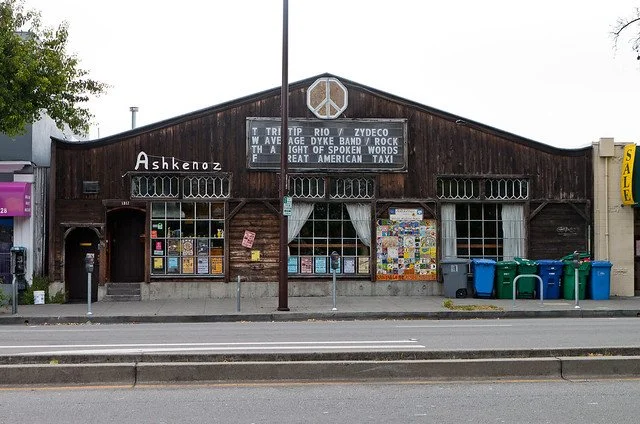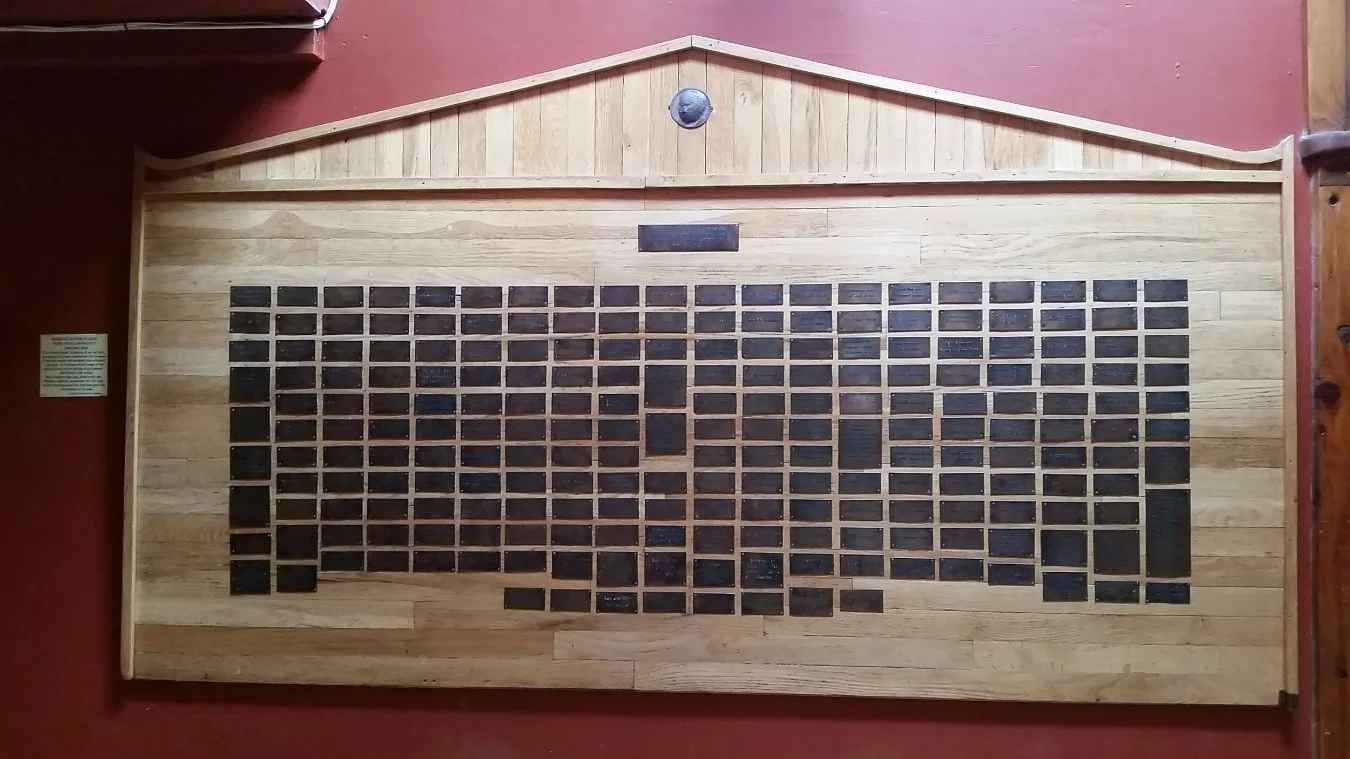1973
Ashkenaz was founded in 1973 by David Nadel, a dedicated human rights activist and folk dancer, in response to the San Francisco Bay Area’s strong interest in international folk dance. As a dancer with the Westwind International Folk Ensemble, David experienced how listening and dancing to the music of other cultures fostered an understanding of different heritages. He was determined to make this experience available to others and envisioned a place where the world's music and dance would dissolve the differences that keep people apart.
David transformed a warehouse on San Pablo Avenue into a dance hall devoted to presenting international and contemporary roots music and dance. It is modeled after an Eastern European wooden synagogue, in honor of his Ashkenazi Jewish ancestors.
1996
The Community Saves Ashkenaz
In 1996, founder David Nadel was murdered by a drunk and unruly patron he had ejected from the premises. The community responded: Ashkenaz dancers, musicians, employees, patrons and activists came together and formed a tax-exempt nonprofit arts organization to continue the important cultural work that David Nadel began. With overwhelming community support, the Ashkenaz nonprofit organization was able to buy the building to continue presenting dance concerts, educational workshops, and fundraisers six to seven nights a week year-round. The dancehall dedicated to peace and nonviolence would remain open despite the one violent act that could have closed its doors.
To this day, Ashkenaz builds community through multicultural, participatory music and dance. In a world increasingly filled with racial and ethnic strife, Ashkenaz will continue to be a safe place where diverse audiences gather to dance to the rhythms of the peoples of the world.
1997
In 1997, the City of Berkeley issued a proclamation designating David Nadel Week the week of January 14, 1997 to January 21st, 1997.
From the proclamation:
“…in a city which takes pride in its cultural diversity and is well known world-wide for the political activities of its citizens, which were exemplified by the life and deeds of David Nadel, that I, Shirley Dean, Mayor of the City of Berkeley, together with the Berkeley City Council, do hereby declare the week of January 14 to January 21, 1997 as David Nadel Week”
1998
The Ashkenaz Peace Wall grew from a collaboration between World Wall for Peace and members of the West Berkeley neighborhood where Ashkenaz is located. The wall tiles were painted at Ashkenaz, at the first danceathon on January 17, 1998, and at the People's Park Fair on May 10, 1998 (Mother's Day).
The World Wall for Peace was dedicated to Ashkenaz founder David Nadel on December 20, 1998, by City Council member, Linda Maio and Carolyna Marks, founder of the World Wall for Peace. There are walls in 31 countries containing over 36,000 tiles. The Ashkenaz World Wall for Peace contains 108 individual tiles and is still on display on the front of the building.
2001
In 2001, Ashkenaz launched a fundraising campaign to "fund the floor." Donors were given the opportunity to commomorate themselves, their organizations or a loved one by contributing $200 or more toward a plank for the new floor. The campaign was a success and a new floor was installed January 2002. The floor is made of 3-4 inch tounge-in-groove maple flooring which originally came from the hudson pencil factory in San Leandro. On February 1, 2002, the floors were unveiled at a grand reopening party attended by more than 450 people with music by Tom Rigney & Flambeau and Tropical Vibrations.
Fund the Floor donor names are displayed on a plaque on the Ashkenaz dance floor history wall in the hallway at Ashkenaz.




